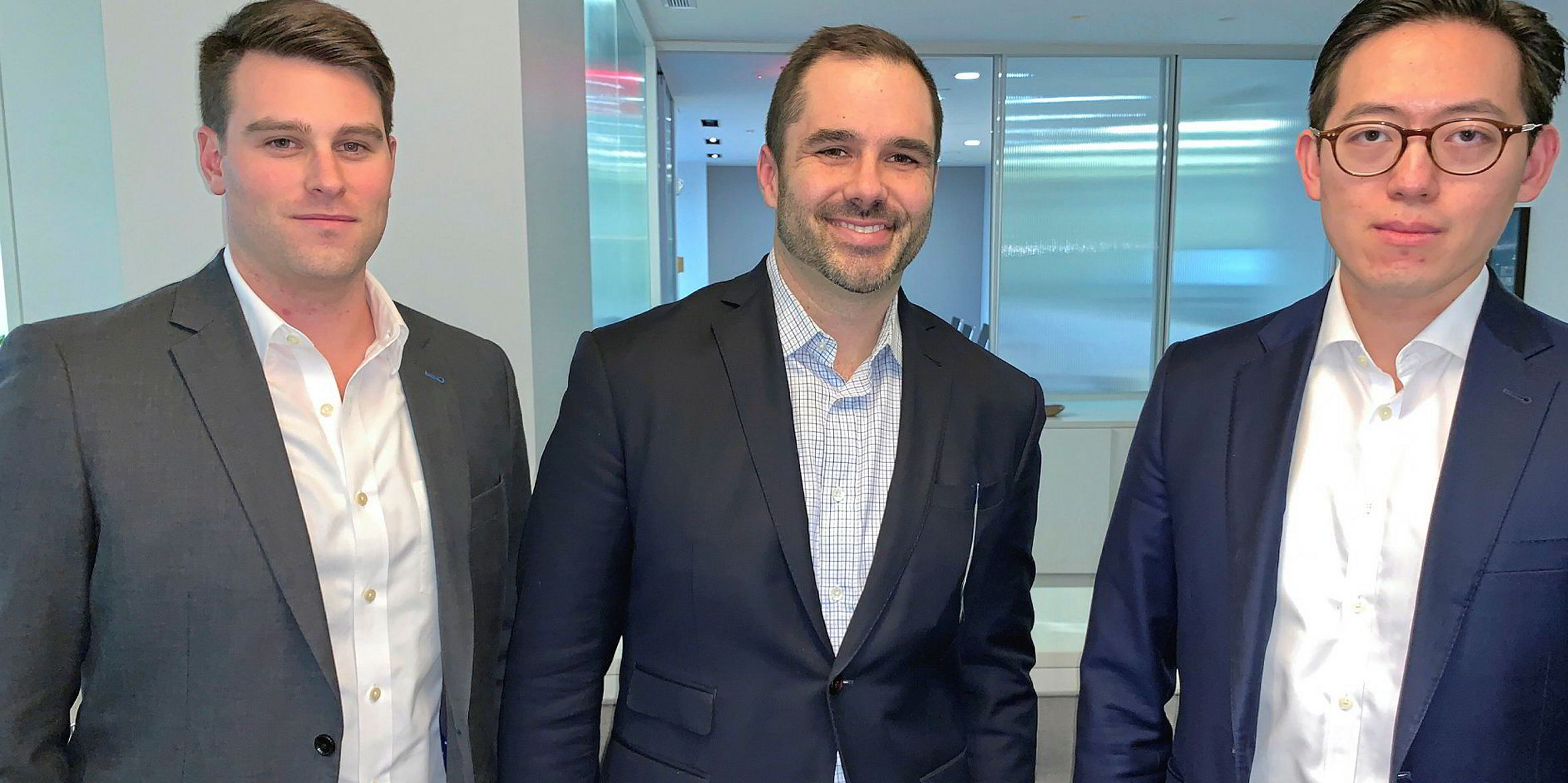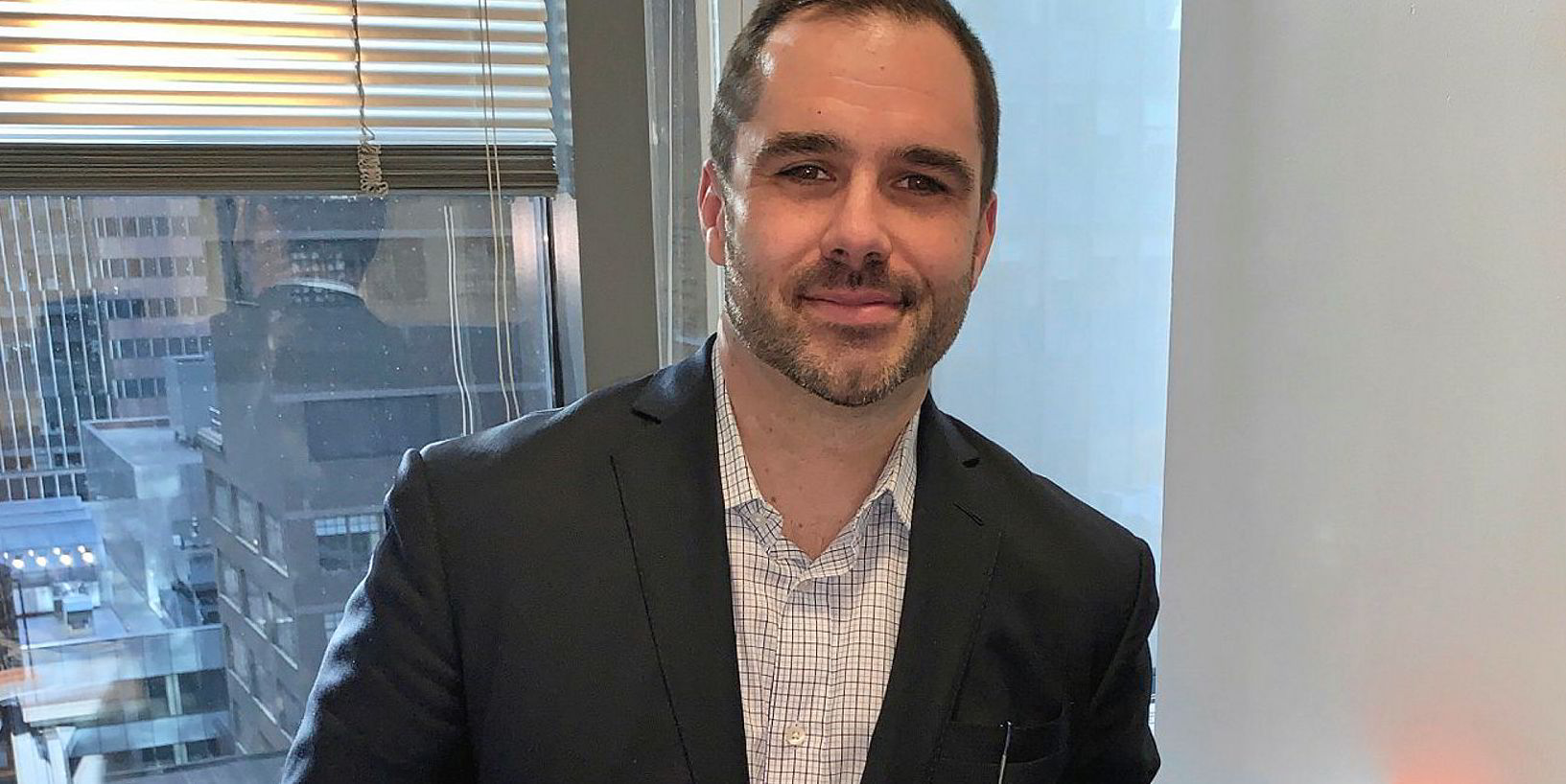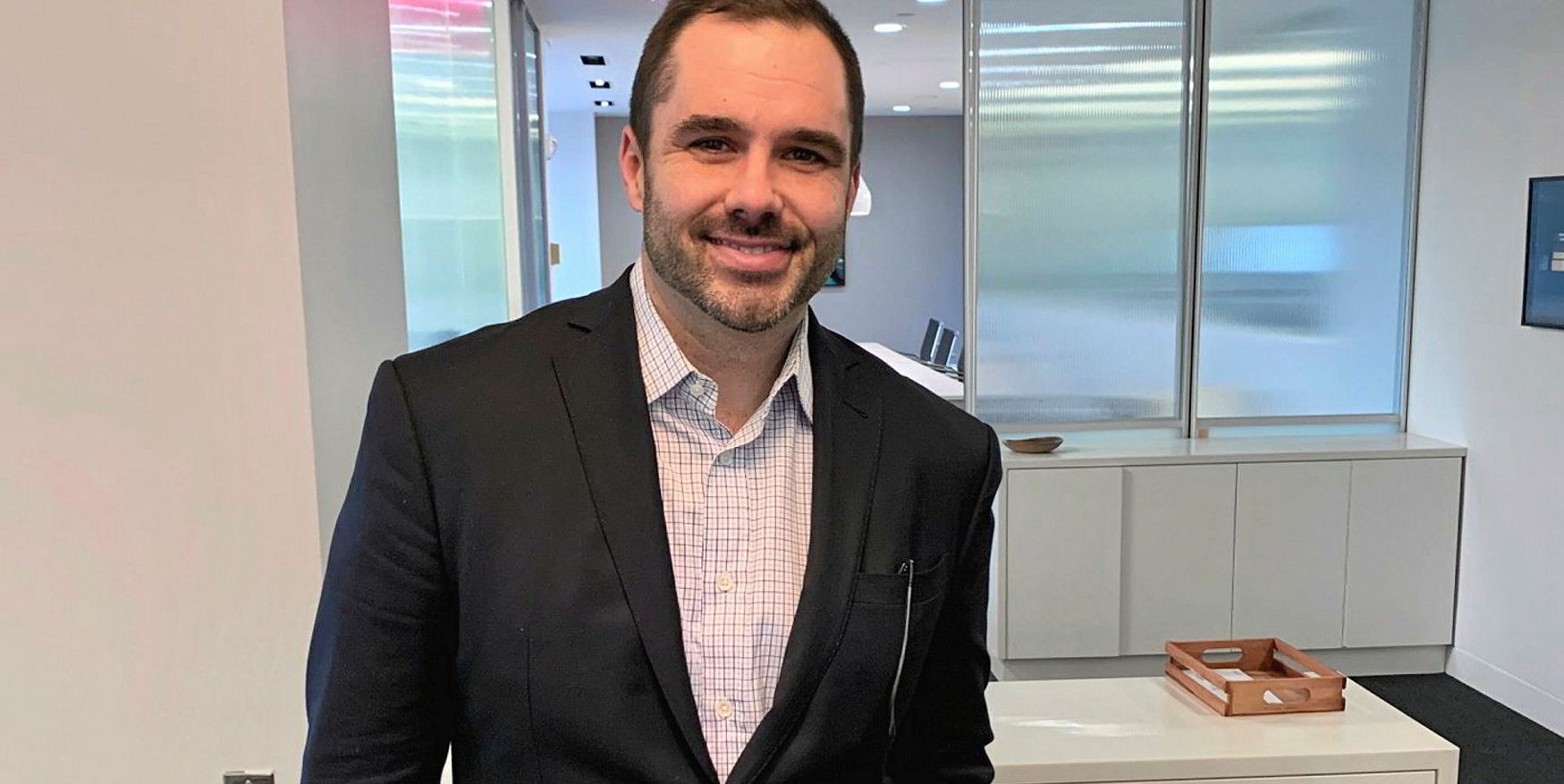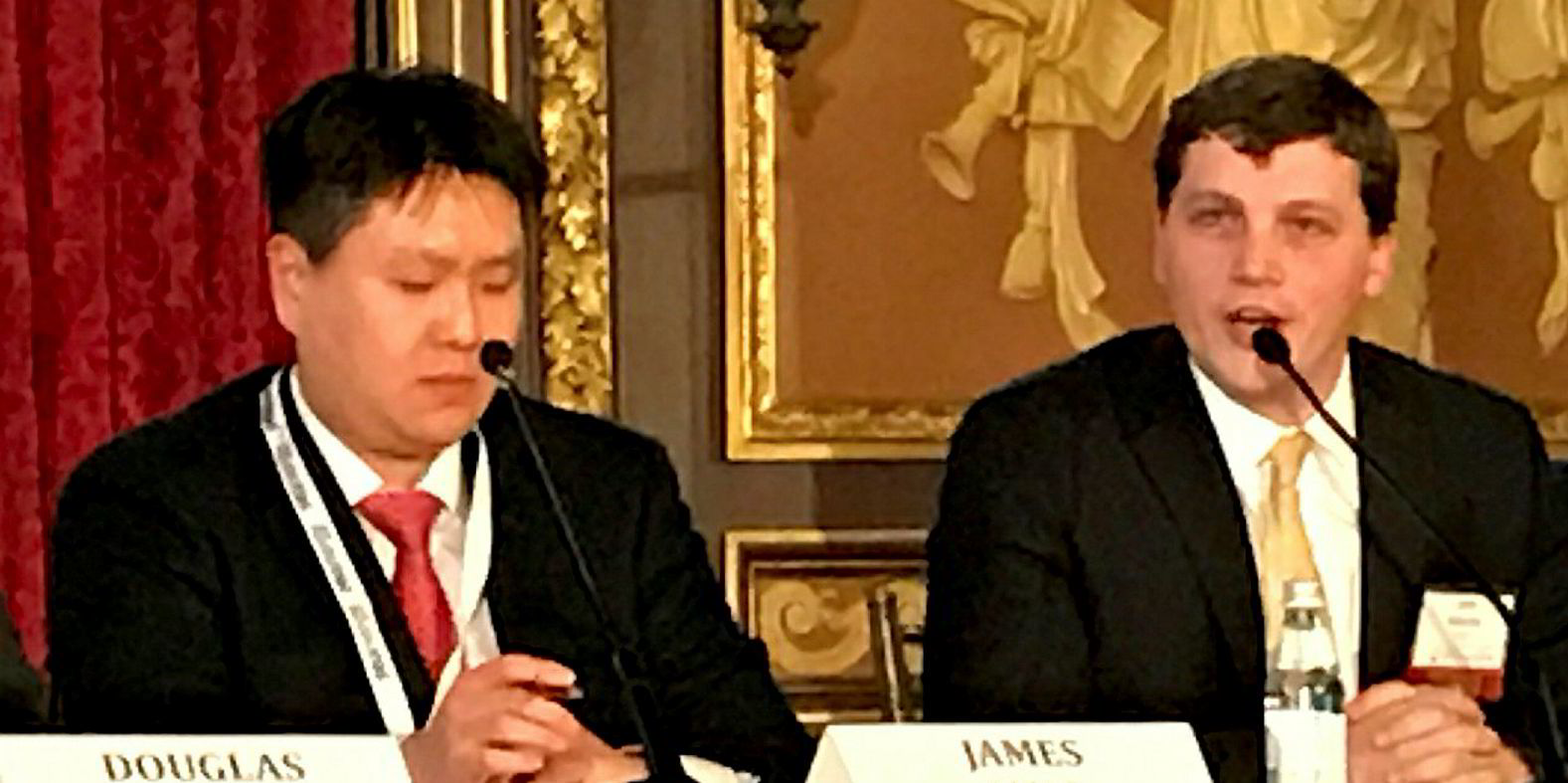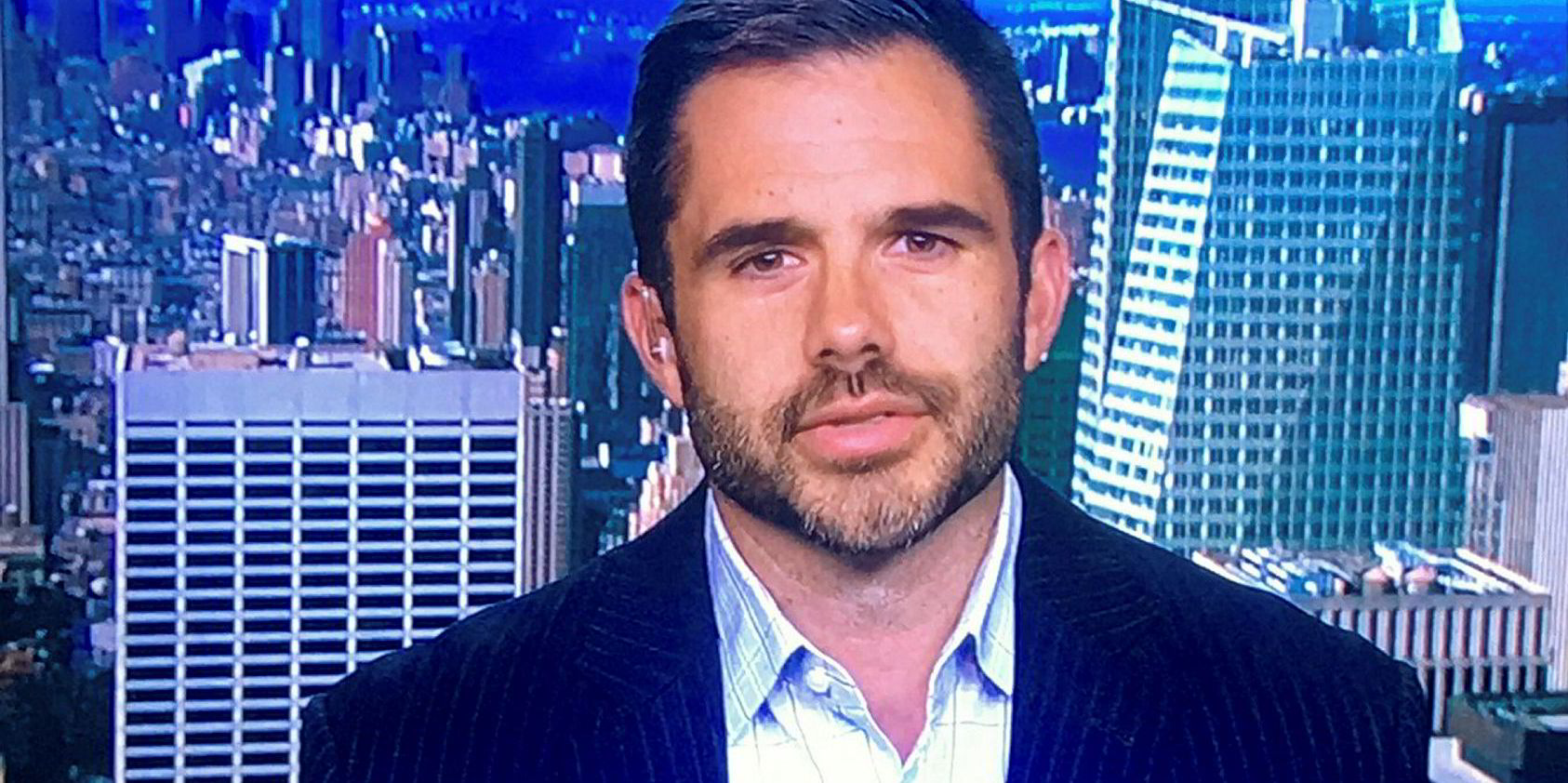Equity analyst Michael Webber gave what might seem a strange answer when asked how running his own shop is different from his days as Wells Fargo Securities' top shipping researcher.
“I spend a lot more time crawling around under my desk than I used to,” Webber said.
Webber realised the remark might take a little more explaining. “When something used to break at Wells Fargo, I’d call somebody and go to lunch. When I’d come back, it would be fixed,” he said.
Hands-on
Today, Webber does much of the fixing at Webber Research & Advisory as it grows its team at its new midtown Manhattan offices.
Webber left the US bank in August after more than nine years. In early October, he launched his own vehicle, initiating coverage on 19 mainstream names in tankers, LNG and LPG carriers, containerships and barges.
TradeWinds recently caught up with Webber and part of his team — associates Greg Wasikowski and Chris Tsung — for an update. Wasikowski had been Webber's associate at Wells Fargo and Tsung is a former Deutsche Bank employee.
“I’ve never been as busy,” Webber said. “My biggest concern is staffing. We’ll need more hands.”
Webber chose to depart the security of Wells Fargo in a year when shipping lost a substantial portion of its analyst corps.
Last June, JP Morgan became the sixth bank to fully or partly dump coverage, following Credit Suisse, UBS, Seaport Global Securities, Maxim Group and Morgan Stanley.
A lack of deals and investor interest was the underlying reason.
As the top shipping analyst five years running in votes tabulated by Institutional Investor magazine, Webber was under no such pressure.
Building blocks
“I like building things,” he said. “It’s something we’d kicked around for a while. We had a very nice moat built around us at Wells Fargo. We created and built a nice platform.
“We were looking at the space shrink around us, as TradeWinds has documented. It seemed like the right time for us to really lean in, when everyone else was either leaning away or flat out running for cover."
Webber said Wells Fargo had what it considered “a dominant market share” that measured 22% of investors for several years, despite a crowded field.
“At that level, growth becomes harder. So when we saw those dynamics aligned and the window opened up, we dove on it.”
But in many ways things have not changed. “What we were doing at Wells was working — we’re not trying to recreate the wheel here,” he said.
For example, Webber Research & Advisory has set up distinct areas of coverage in mainstream shipping, the LNG sector and infrastructure/containerships.
We’re not permanently tethered to any specific firm or bank, so it creates a lot of flexibility and makes us more accessible
Michael Webber
The firm plans to expand into renewable energy, but that had also been the idea at Wells Fargo. If anything, Webber's departure has delayed Wells Fargo's expansion into that sector by a quarter or so.
Webber is probably best known for establishing shipping’s first corporate governance scorecard in 2016. He is continuing the rankings at his new shop with an added focus on carbon emissions.
“We do a mix of research and consulting, but even at Wells Fargo our business was about half of each,” Webber said.
“One big difference is that now we’re not permanently tethered to any specific firm or bank, so it creates a lot of flexibility and makes us more accessible.
Inbound enquiry
“Since we’ve left, I’ve had more inbound enquiry from a project-consulting perspective than I expected. It’s more than we know what to do with right now, honestly.”
Webber Research & Advisory earns fees for access to research that is locked behind a paywall, and for its consulting projects.
It does not get paid based on trading commissions, as had once been the norm for equity analysts at the big banks. Regulatory changes brought about by the Markets in Financial Instruments Directive meant that compensation based directly on trading was no longer the practice at Wells Fargo either.
Mainstream shipping remains at the core of what Webber Research & Advisory does.
“Shipping is kind of home for us — it's where we cut our teeth,” Webber said. “I can’t ever see pulling back completely from that space.
“I’m very excited about the tankers group. If it’s not our favourite sector across all that we cover, it’s certainly one of them. IMO 2020 and prospects for alternative fuelling have created an inflection point that comes along once every few decades.”

